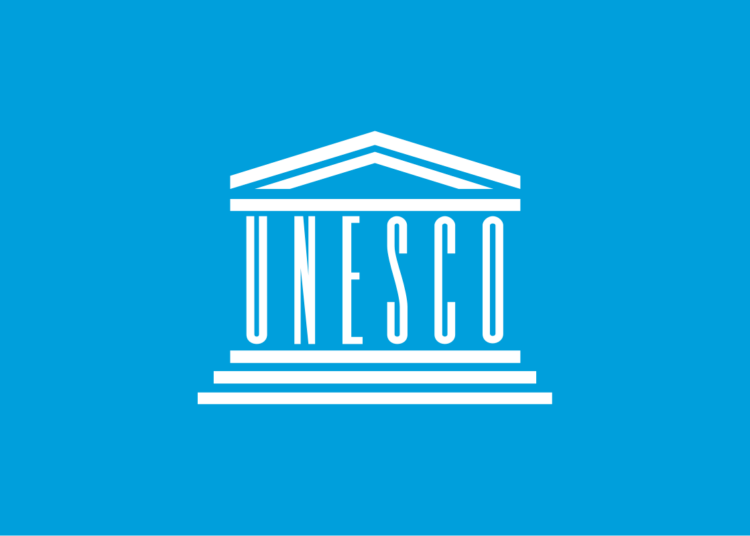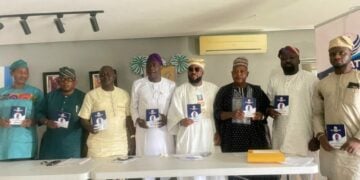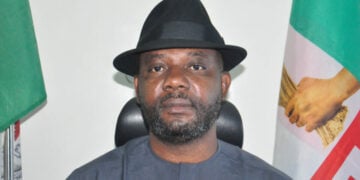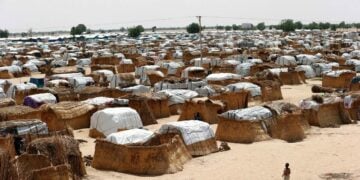The United Nations Educational, Scientific and Cultural Organisation (UNESCO) and the United Nations Office on Drugs and Crime (UNODC) have reaffirmed their commitment to using creative storytelling and the power of photography to bridge divides, preserve culture, and foster peace across the world.
Speaking at the opening ceremony of the 9th Abuja International Photo Festival on Wednesday, UNESCO’s head and representative in Nigeria, Jean-Paul Abiaga, emphasised the organisation’s continued support for young creators — particularly in Nigeria, where over 70 percent of the population is under 30.
He highlighted the crucial role of creative storytelling in combating misinformation and enhancing the integrity of information.
“It is always a pleasure for UNESCO to be part of this kind of event,” Abiaga said. “In the future, we hope you’ll no longer consider UNESCO just a partner, but one of your own.”
He took a moment to recognise photographers and artists whose work continues to enrich global culture, urging the audience to applaud their contributions.
“Photography, which began nearly two centuries ago, has become a powerful medium of storytelling just as impactful as words, music, and dance,” he said.
He added, “In Africa, and especially in Nigeria, photography has shaped how we view ourselves from the colonial era to the present day celebrating our identity, resilience, and history.”
Abiaga acknowledged the ongoing “photo revolution” brought about by smartphones and digital cameras, which have transformed personal devices into global galleries.
“These new tools connect us in ways we never imagined, linking us not only to each other but also to our past and future,” he added, emphasising photography’s role in fostering global peace.
However, he cautioned against the dangers of misinformation in the digital age, citing a UNESCO survey which revealed that 62 per cent of digital content creators do not verify the accuracy of the content they share.
“A photo speaks powerfully, but it can also divide us if not used responsibly,” he warned, stressing the critical role of photographers and photojournalists in promoting peace, unity, and understanding.
UNESCO, he said, remains dedicated to supporting Nigeria’s youth — especially those pursuing creative careers — by equipping them with the tools to contribute to peacebuilding and sustainable development.
Also speaking, UNODC Representative Cheikh Toure acknowledged the powerful and impactful work showcased at the festival, emphasizing how art illuminates the complex social issues that the UNODC addresses in its global mission.
“We are here today because the work being presented aligns with the core values we hold dear — fostering resilience, peace, and positive societal change,” Toure said.
He further underscored the importance of collaboration between the UNODC and the creative sector. “If our work is to be credible and effective, it must involve your voices, your talents, and your creativity. We need to work together for our efforts to truly resonate and create meaningful change,” he added.
The festival’s opening also marked the launch of the Creative Alliance for Peace, an initiative bringing together creatives to explore how art and culture can play pivotal roles in conflict resolution and peacebuilding.
“We are proud to support these creative initiatives, even though they may seem distant from our core work,” Toure stated. “Your contributions are invaluable to our mission, and together, we can create lasting change that benefits Nigeria and the world.”
Also speaking at the event, the Special Assistant to the President on Arts, Culture, Tourism, and the Creative Economy, Ayomide Adeagbo, said the Federal Government is developing new copyright policies to protect creatives and strengthen the industry.
“The government is working on intellectual property policies for creatives in Nigeria, and it’s very vital,” Adeagbo said. “Photography is part of the creative sector, and we want our creatives and photographers to own their work and have full control over it. Very soon, these policies will be rolled out nationwide.”
Festival convener Efe Osaze said the annual event aims to celebrate the art of photography and its power to connect the world.
“This year’s theme, A World Connected, focuses on the power of photography to bridge cultural, ideological, and geographical divides,” he said.
He emphasised photography’s universal language and its ability to unite people across different backgrounds. “In a world increasingly divided by distance and differences, photography stands as one of the few ways to bring us all together,” he said.





